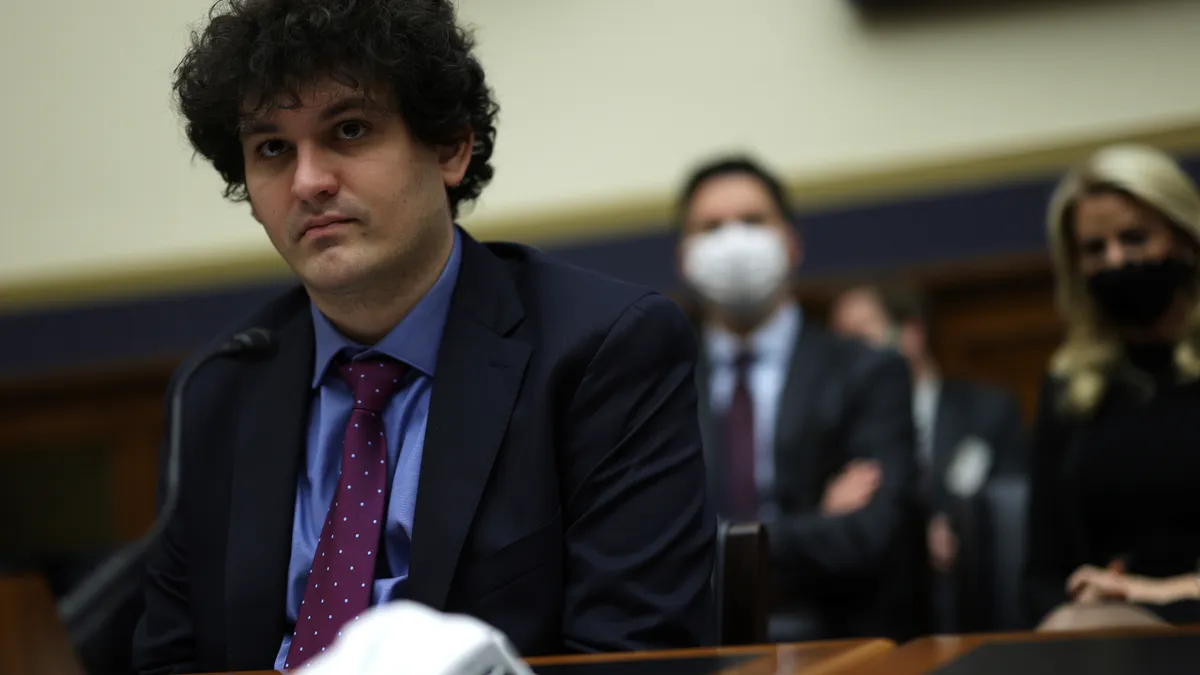Former FTX CEO Sam Bankman-Fried made his first live public appearance Wednesday since the collapse of crypto the empire in November, admitting he “screwed up.”
Tuning in remotely to The New York Times’ DealBook Summit from his home in the Bahamas, Bankman-Fried told journalist Andrew Sorkin he “unknowingly commingled funds” between sister company Alameda Research and FTX. The funds were deposited by customers into the FTX platform and subsequently loaned to Alameda Research despite FTX’s terms of service, which asserts that customer assets in their custody aren’t their property and that they won’t use the assets as their own.
When Sorkin said “there appears to be a genuine commingling of the funds that are FTX customers’ that were not supposed to be commingled with your separate firm,” Bankman-Fried blamed the issue on lack of oversight.
“I unknowingly commingled funds. … I was frankly surprised by how big Alameda’s position was, which points to another failure of oversight on my part and failure to appoint someone to be chiefly in charge of that,” Bankman-Fried said. “But I wasn’t trying to commingle funds.”
He didn’t know the size of Alameda’s position, he said, because he wasn’t running the company. While Bankman-Fried founded Alameda, it was run by then-CEO Caroline Ellison.
In response to inquiries about concern of his own criminal liability, Bankman-Fried said, “I don’t think that I personally have [criminal liability], but I think the real answer is that’s not what I’m focusing on.”
“There’s going to be a time and a place for me to sort of think about myself and my own future, but I don’t think this is it. ... I’ve had a bad month, but that’s not what matters here,” he said. “What matters here is the millions of customers and all the stakeholders in FTX who got hurt and trying to do everything I can to help them out. I don’t think that what happens with me is the important part, and I don’t think it makes sense for me to be focusing on that.”
Bankman-Fried told Sorkin he only started “feeling nervous” about a problem with FTX on Nov. 6. That assertion, however, goes against his Nov. 7 claims via Twitter that “FTX is fine. Assets are fine,” and that a competitor was “trying to go after us with false rumors.” He also claimed at the time that FTX had enough to cover all client holdings and didn’t invest client assets.
Those tweets have since been deleted.
Bankman-Fried said his lawyers advised him against speaking at the summit, but that he has “a duty to talk and to explain what happened.”
The fallout from FTX’s November collapse has a running list of victims, including BlockFi, which filed for bankruptcy Monday, and crypto trading firm Genesis, which is reportedly exploring bankruptcy among other options.
Bankman-Fried said Wednesday he’d been left with “close to nothing” and just one working credit card. He told Axios on Monday he had $100,000 in his bank account at last glance — a far cry from his past $26.5 billion net worth.
Bankman-Fried followed the DealBook Summit by tweeting Thursday, “When I filed [for bankruptcy], I'm fairly sure FTX US was solvent, and that all US customers could be made whole. To my knowledge, it still is today. I was expecting that to happen. I'm surprised it hasn't. I'm not sure why US withdrawals were turned off.”














